Shammi Kapoor
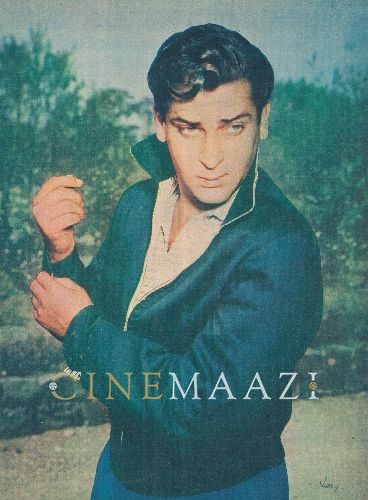
Subscribe to read full article
This section is for paid subscribers only. Our subscription is only $37/- for one full year.
You get unlimited access to all paid section and features on the website with this subscription.
Not ready for a full subscription?
You can access this article for $2 , and have it saved to your account for one year.
- Real Name: Shamsher Raj Kapoor
- Born: 21 October, 1931 (Bombay, India)
- Died: 14 August, 2011
- Primary Cinema: Hindi
- Parents: Prithviraj Kapoor , Ramsharni Mehra Kapoor
- Spouse: Geeta Bali , Neila Devi
- Children: Aditya Raj Kapoor, Kanchan Ketan Desai
‘Yahoo!’… Synonymous with the boisterous holler in the aptly titled Junglee (1961), Shammi Kapoor’s flamboyant style, raw passion, and Westernised appeal unleashed the power of youth on the Hindi film screen, which had never experienced anything like him before. Summarising his appeal in Bollywood’s Top 20 Superstars of Indian Cinema, Nasreen Munni Kabir wrote: “Most importantly, he exuded an unabashed and irresistible sexuality that was far from the heroes of the time, who projected romanticism but rarely sexuality. With his dreamy eyes, soft voice, charming dialogue delivery and arresting personality, Shammi Kapoor radiated the raw appeal of an Elvis Presley – especially evident when performing songs.”
Hailed as one of the most entertaining lead actors of Hindi cinema, his unbridled style established him as the premiere dancing hero in Hindi films from the late 1950s till the early 1970s. He delivered several superhits during the course of his career such as Tumsa Nahin Dekha (1957), Dil Deke Dekho (1959), Junglee (1961), Professor (1962), Rajkumar (1964), Kashmir Ki Kali (1964), Teesri Manzil (1966), An Evening in Paris (1967), Brahmachari (1968), Sachaai (1969), Prince (1969), and Andaz (1971). Born into the Kapoor family, a dynasty of Indian cinema, son of Prithviraj Kapoor and younger brother of Hindi film star and filmmaker Raj Kapoor, Shammi Kapoor went on to be honoured thrice by the Filmfare Awards with Best Actor for Brahmachari (1968), Best Supporting Actor for Vidhaata (1982), and a Lifetime Achievement award in 1995. An active participant in the Internet in its nascent stage, with a fan club website, he was also a founder of the Internet Users Community of India.
Born on 21 October, 1931 in Bombay, Shamsher Raj Kapoor, as he was named, was the second of three sons born to film and theatre actor Prithviraj Kapoor and Ramsharni Mehra Kapoor. Completing his matriculation from New Era School at Hughes Road, and post a short spell at Ramnarain Ruia College, he joined Prithvi Theatres, his father’s theatrical company. After four years as a junior artiste, he went on to make his debut in Jeewan Jyoti (1953), directed by Mahesh Kaul, starring Shashikala and Leela Mishra. The film did not fare well at the box office. In fact, none of his early films managed to make a mark, despite the presence of top heroines such as Madhubala in Rail Ka Dibba (1953) and Naqab (1955), Nutan in Laila Majnu (1953), Shyama in Thokar (1953) and Mirza Sahiban (1957), Nalini Jaywant in Hum Sab Chor Hain (1956) and Mehbooba (1954), Suraiya in Shama Parwana (1954), and Meena Kumari in Mem Sahib (1956). Playing secondary roles to these established actresses in women-oriented films, he was largely overshadowed.
Around 18 failures had to be endured before the turning point came with writer-director Nasir Hussain’s Tumsa Nahin Dekha (1957). Cast as the debonair, flamboyant, light-hearted and stylish playboy, the film catapulted him into fame and stardom. Dil Deke Dekho reinforced the charm and with Junglee Kapoor emphatically became the rage of the 1960s, starring in several hit films like Professor, Kashmir Ki Kali, Teesri Manzil and An Evening In Paris.
The toast of the romcom genre, Kapoor was often paired with new actresses such as Asha Parekh, Saira Banu, Sharmila Tagore and Sadhana, all of whom went on to have successful careers. He also struck up successful pairings with South Indian heroines such as B. Saroja Devi in Pyaar Kiya To Darna Kya (1963) and Preet Na Jane Reet (1966), Padmini in Singapore (1960), and Vyjayanthimala in College Girl (1960) and Prince (1969). His successful films in the late 1960s included Budtameez (1966) and Sachaai, with Sadhana, Brahmachari with Rajshree, Latt Saheb (1967) with Nutan, Tumse Achha Kaun Hai (1969) with Babita, An Evening In Paris with Sharmila Tagore and Prince with Vyjayanthimala.
Kapoor’s foot-tapping songs onscreen were invariably voiced by Mohammed Rafi—it was a perfect match in every way. His onscreen dancing, which he reportedly choreographed himself, earned him the moniker of the Elvis Presley of India. His dance routines exhibited a manic energy and a macho physicality that was all his own. Despite not adhering to a formal style, his moves exuded rhythm and grace, as seen in such memorable numbers as Dil deke dekho, Baar baar dekho, O haseena zulfonwaali, Aaja aaja, Aaj kal tere mere pyar ke charche, and Suku Suku.
The 70s saw a slump setting in with his films like Preetam (1971) and Jawan Mohabbat (1971) failing at the box office. With his increasing girth proving to be a deterrent to playing the romantic hero, Andaz (1971) was his last hit as a leading man. While Chhote Sarkar (1974) was his last film in a lead role, he moved on to a successful stint as a supporting actor playing Saira Banu's father in Zameer (1975), and Amitabh Bachchan's foster father in Parvarish (1977). He also went behind the camera, directing Manoranjan (1974), and Bundal Baaz (1976). The films were not commercially successful and were considered ahead of their time. Manoranjan portrayed prostitution minus the moral dilemmas, thus whipping up considerable controversy, while Bundal Baaz was a romantic comedy with a genie in attendance that proved to be too fantastical for audience tastes.
Kapoor continued to play supporting roles through the 80s and 90s, winning a Best Supporting Actor Award for his performance in Vidhaata (1982), which had Dilip Kumar and Sanjeev Kumar in major roles. He also appeared in a TV serial, Chattan which was aired on Zee TV for more than a year in the 1990s. Reducing his film appearances by the late 1990s and early 2000s, he was seen in a few films like Jaanam Samjha Karo (1999), Dev Anand's Censor (2001), Waah! Tera Kya Kehna (2002), the delayed release Sandwich (2006), and Rockstar (2011) starring his grand-nephew Ranbir Kapoor, grandson of his brother Raj Kapoor.
Shammi Kapoor had married his co-star Geeta Bali in 1955 within just four months of starting Rangeen Raaten (1956) together, in a secret wedding at Banganga temple. They had two children, a son, Aditya Raj Kapoor and a daughter, Kanchan. Geeta Bali died of smallpox in 1965. Shammi Kapoor married Neila Devi, from the former royal family of Bhavnagar in Gujarat, in 1969.
One of the foremost Internet users in India, Shammi Kapoor was also the founder and chairman of Internet Users Community of India (IUCI). He had played a key role in setting up Internet organisations like the Ethical Hackers Association.
Shammi Kapoor passed away aged 79 on August 14, 2011 due to chronic renal failure. A brass statue of the veteran actor was unveiled at the Walk of the Stars at Bandra Bandstand, Mumbai.
-
Filmography (122)
SortRole
-
Rockstar 2011
-
Sandwich 2006
-
Waah! Tera Kya Kehna 2002
-
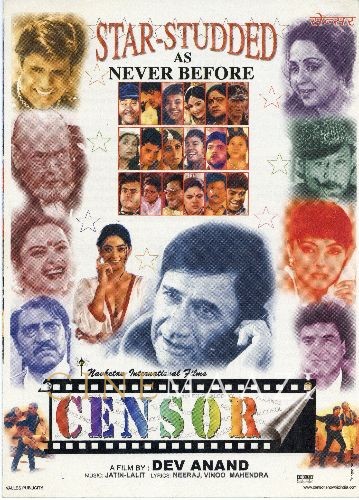
Censor 2001
-
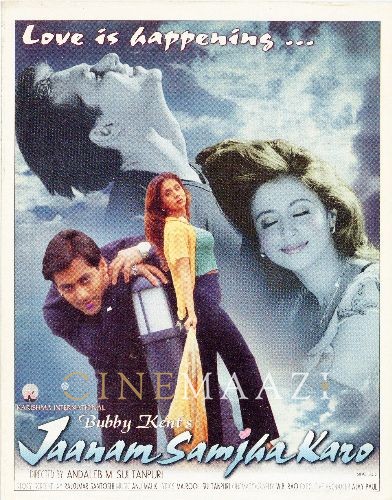
Jaanam Samjha Karo 1999
-
Janam Samjha Karo 1999
-
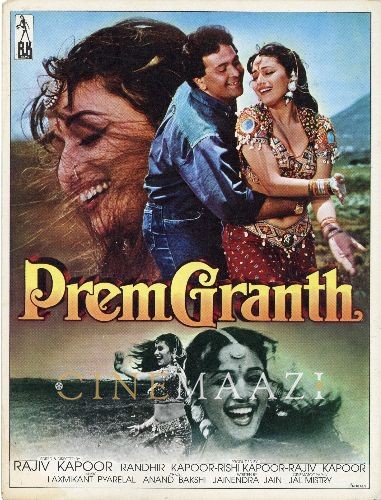
Prem Granth 1996
-
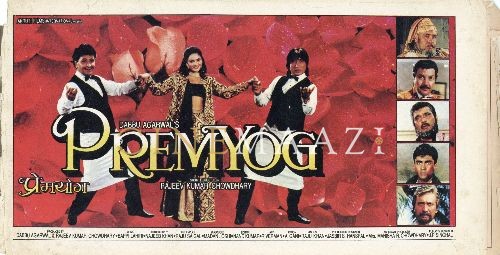
Prem Yog 1994
-
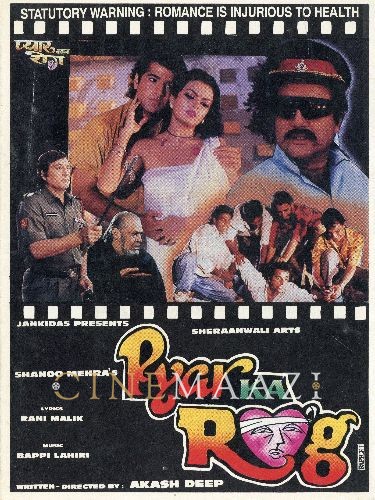
Pyar Ka Rog 1994
-
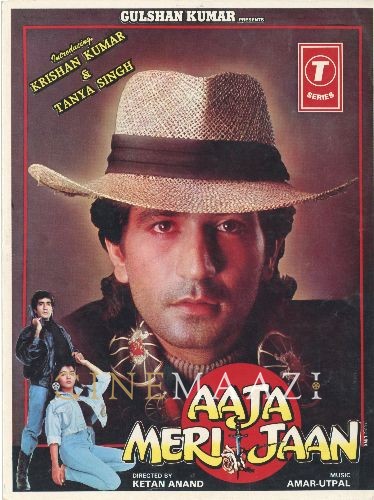
Aaja Meri Jaan 1993
-
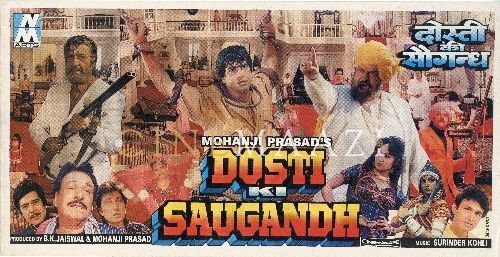
Dosti Ki Saugandh 1993
-

Gardish 1993
-






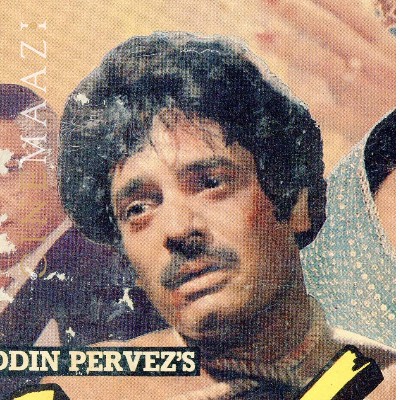

.jpg)



